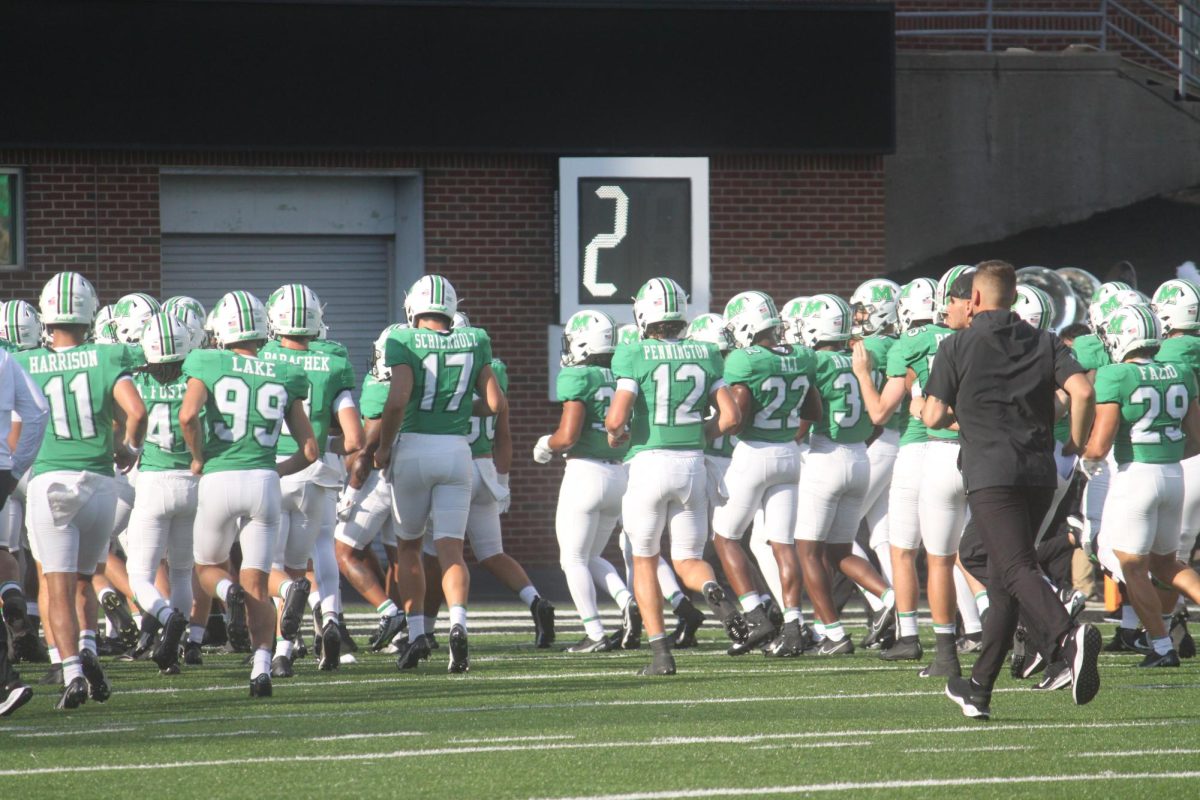For AIDS Awareness Week, Marshall University will have the AIDS Memorial Quilt on display in Drinko Library. The quilt has 48,000 squares memorializing over 125,000 victims since the 1980s, said a Marshall University IT member.
Jody Perry, the senior director of client services and IT, said the piece displayed in Drinko is a small part of a larger quilt. He said the part of the quilt on display is the piece that represents the local community.
“The full quilt is 1.2 million square feet,” Perry said.
Perry also said the local Huntington Pride group paid for the quilt to be on display, and Marshall Libraries offered to keep it on display.
Meghan Sexton-Harness, a research spe- cialist at Drinko Library, said the quilt began as a way for artist Cleve Jones to show the world how many people had died from AIDS/HIV. They said the quilt’s squares represent victims of the disease from all over the world.
“Every block on the AIDS quilt represents one dead body,” Sexton-Harness said. “There’s panels from France, from Germany, all over the world. People made these beautiful panels that represented their loved one. Some of them have the loved one’s pictures on them. Some of them are simply a name and a date.”
Sexton-Harness said the quilt is part of a large ceremony held in Washington D.C. every year. The quilt is fully unfurled and accompanied by a reading of the name of every known victim of the disease.
Sexton-Harness said the disease begins as HIV, and, once the immune system is destroyed, then it becomes AIDS. While having unprotected sex is the most known form of contraction, activities such as needle sharing and breastfeeding are also ways to spread HIV. They said, through modern technology and medicine such as PrEP, people with the disease can become undetectable.
“When you’re undetectable, you cannot transmit,” Sexton-Harness said.
Perry said because gay men were the largest group affected by AIDS/HIV, the disease was called the gay cancer. He said this term harmed the LGBTQ movement in the 1980s.
Although the stigma of AIDS/HIV has not disappeared, Perry said he believes that it is improving. He said new technology and medicine are allowing the disease to be less stigmatized than it was ten years ago. He said the AIDS/HIV movement and the push to educate people on the topic are large factors.
“Education and experience is always the best way to move forward,” Perry said.
Sexton-Harness, meanwhile, said it is important to inform college students about the dangers of AIDS/HIV. They said it is important to inform students about the disease and how to treat it. They also said, even though there are treatments, there is always a chance of dying from the disease.
“So, a lot of kids—and there’s no shame in it—think that they’re invincible. It’s never going to happen to them,” Sexton-Harness said. “They’re not getting tested. We’re very insular here at Marshall, you know—all of our building space inward, very close knit community. So, it’s very hard for these other organizations to come in and raise awareness. So, I want to make sure that kids know that it is still out there.”
Sexton-Harness said they are worried that, because AIDS/HIV has become livable, more and more people are beginning to ignore the disease.
“We’re seeing a lot of intravenous spread,” Sexton-Harness said. “If it’s in our community, it’s here on campus, and I just- I want students to know their precautions, know how to protect themselves because it is a life-changing diagnosis.”
Perry said the quilt exhibit is important to have on campus because of how it brings awareness to the movement. He said the specific piece borrowed from the AIDS/HIV Memorial Foundation has names of victims from the local Huntington community.






















